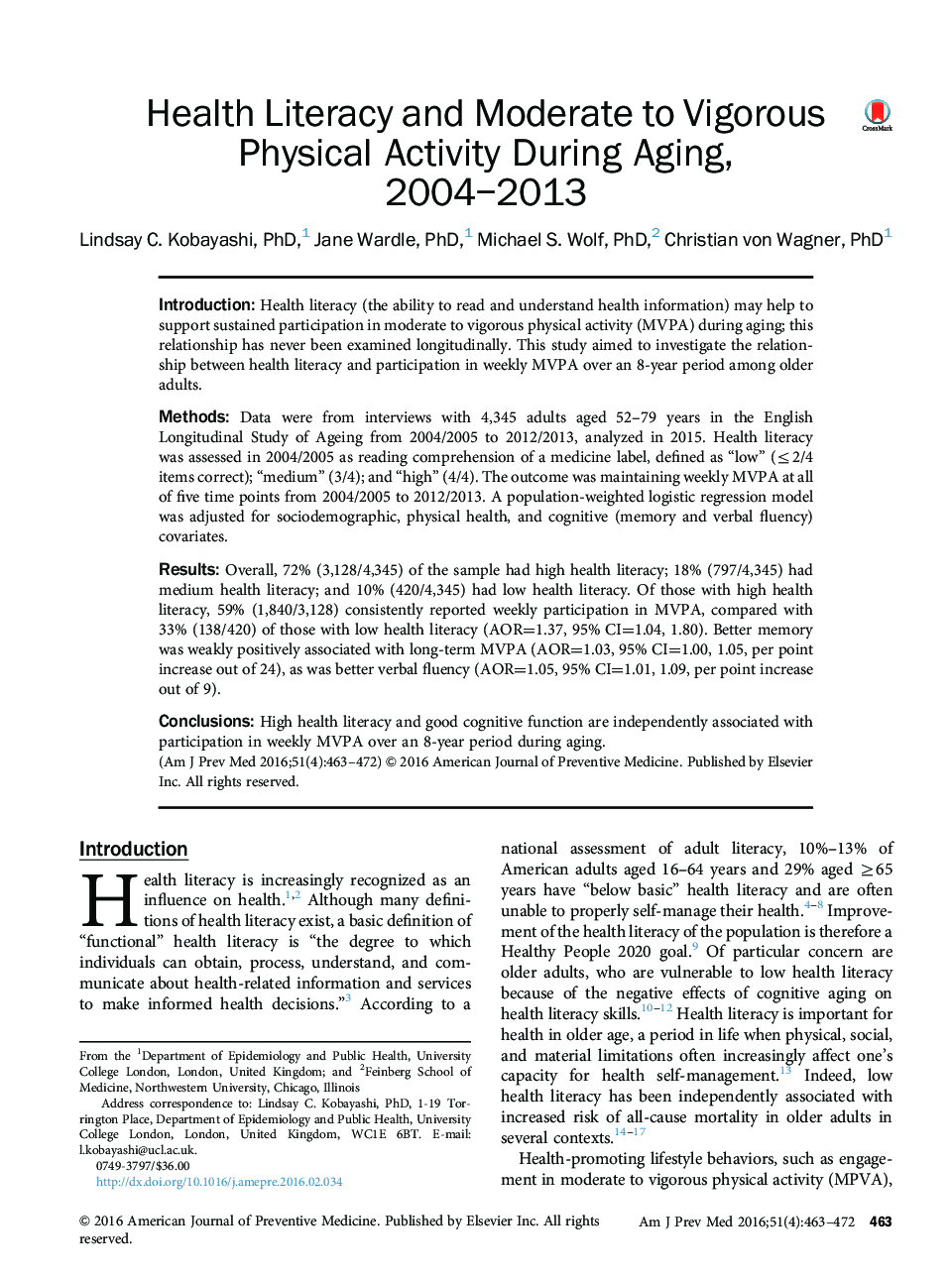| Article ID | Journal | Published Year | Pages | File Type |
|---|---|---|---|---|
| 4191841 | American Journal of Preventive Medicine | 2016 | 10 Pages |
IntroductionHealth literacy (the ability to read and understand health information) may help to support sustained participation in moderate to vigorous physical activity (MVPA) during aging; this relationship has never been examined longitudinally. This study aimed to investigate the relationship between health literacy and participation in weekly MVPA over an 8-year period among older adults.MethodsData were from interviews with 4,345 adults aged 52–79 years in the English Longitudinal Study of Ageing from 2004/2005 to 2012/2013, analyzed in 2015. Health literacy was assessed in 2004/2005 as reading comprehension of a medicine label, defined as “low” (≤2/4 items correct); “medium” (3/4); and “high” (4/4). The outcome was maintaining weekly MVPA at all of five time points from 2004/2005 to 2012/2013. A population-weighted logistic regression model was adjusted for sociodemographic, physical health, and cognitive (memory and verbal fluency) covariates.ResultsOverall, 72% (3,128/4,345) of the sample had high health literacy; 18% (797/4,345) had medium health literacy; and 10% (420/4,345) had low health literacy. Of those with high health literacy, 59% (1,840/3,128) consistently reported weekly participation in MVPA, compared with 33% (138/420) of those with low health literacy (AOR=1.37, 95% CI=1.04, 1.80). Better memory was weakly positively associated with long-term MVPA (AOR=1.03, 95% CI=1.00, 1.05, per point increase out of 24), as was better verbal fluency (AOR=1.05, 95% CI=1.01, 1.09, per point increase out of 9).ConclusionsHigh health literacy and good cognitive function are independently associated with participation in weekly MVPA over an 8-year period during aging.
